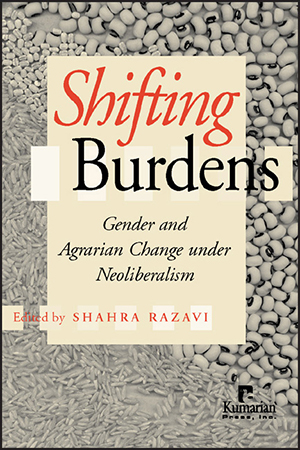The authors of Shifting Burdens explore the often overlooked gender-related effects of the neoliberal policy shifts in rural development that have reduced the role of government and switched costs of services to the rural poor themselves.
Shahra Razavi is chief of research and data at UN Women.
"At the cutting edge of gender and development scholarship. Shifting Burdens provides a richly textured account of the complex relations between the macro-level policy context, agrarian change, and gender relations in diverse regional settings. It also takes on burning policy issues such as land rights, micro-credit, and participation, questioning conventional wisdom in an informed and empirically grounded manner. This is compulsory reading for scholars, students, and practitioners alike." —Deniz Kandiyoti, University of London
"Groundbreaking.... The authors challenge prevailing orthodoxies related to market liberalization, agrarian change, and gender relations and provide valuable new insights for both theory and policy.” —Zenebeworke Tadesse, Forum of Social Studies








